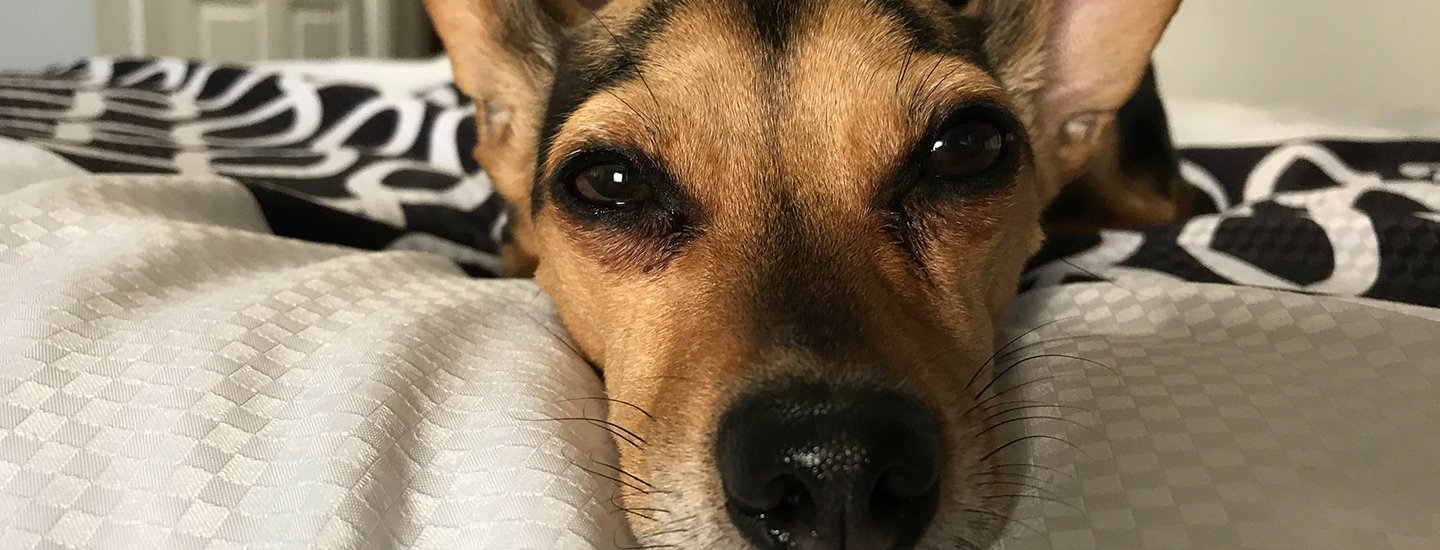Is your snoring keeping even the dog awake? Snoring, that unwelcome symphony of sleep, may not be just for our male partners any more. If you’ve ever awakened feeling like you were choking, or if your partner (or dog) reports that you’re snoring, you may be suffering from sleep apnea, or interrupted breathing during sleep. Menopause and sleeping too much are often synonymous, but if you experience these symptoms there is a realistic possibility that you may have sleep apnea.
If you are worried about the health risks of sleep apnea, a Gennev menopause-certified gynecologist can give you a trusted opinion, and determine what treatment is right for you. Book an appointment with a doctor here.
How menopause increases your risk of sleep apnea
As estrogen and progesterone levels drop, the muscle tone in the body’s airway decreases, allowing it to partially collapse in sleep, says Brandon Peters, MD. This is called “obstructive sleep apnea” (OSA), and it can cause pauses in breathing or shallow breathing, sometimes severe enough to wake you up. Even if you never entirely awaken, sleep apnea denies you the deep slumber that rejuvenates your body and mind.
Sleep apnea often goes undiagnosed in post-menopausal women because many of its symptoms look like typical menopause complaints”snoring and menopause are commonly associated. However, assuming these symptoms are “just menopause” is a particularly bad idea because untreated sleep apnea can be very dangerous to your health.
Shared symptoms, sleep apnea and menopause*
These may sound familiar “¦
- Poor sleep
- Irritability
- Daytime drowsiness
- Weight gain
- Poor memory, difficulty concentrating, and brain fog
- Depression and anxiety
Show of hands? Anyone? While very often these are due to menopause and not sleep apnea, if they’re accompanied with reports of snoring or breaks in breathing, or if you wake up gasping or choking or you often awaken with a headache, it’s time to talk with a doc or a sleep specialist.
What makes sleep apnea dangerous?*
While an increase in snoring might feel like sweet revenge for the chainsaw you’ve been (not) sleeping next to for years, you really need to get it checked out. Including the list of symptoms above, OSA has been connected to a long list of serious health concerns, including:
- higher risk of high blood pressure, abnormal heart beat, even heart attacks and stroke due to low blood oxygen caused by sleep apnea.
- higher risk of insulin resistance and Type 2 diabetes.
- higher risk of Alzheimer’s disease, dementia, and other cognitive deficits.
Getting Diagnosed and Sleep Apnea Treatment
There’s no blood test for sleep apnea; it generally has to be witnessed to be diagnosed. Your doc may recommend a sleep test called a polysomnography. There are at-home versions, though many choose to spend a night at a sleep disorder center.
Once diagnosed, there are options for treatment, depending on the severity of the OSA: the CPAP (continuous positive airway pressure) is a very common treatment. A CPAP machine pumps air through a nose mask to keep your airway open. Oral appliances can open your throat or bring your jaw forward to relieve obstruction. In severe cases, tissue removal or jaw surgery may be called for.
If you suspect you may have sleep apnea, talk to your doctor right away. Some medications can worsen this condition, so it’s really important to know if you’ve developed OSA when adding new treatments.
(apnea not the problem but still need better sleep? check out our post on why you need good sleep and how to get it)
If you have mild sleep apnea (and you don’t get to diagnose this yourself, btw), there are lifestyle changes that can minimize symptoms and help you sleep better.
- Maintain a healthy weight. Losing excess weight can reduce the constriction, sometimes even eliminating OSA entirely.
- Avoid alcohol and sleeping pills. While you might think of them as trusty menopause sleep aids, anything that relaxes the back of the throat can contribute to interrupted breathing in sleep.
- Talk to your doc about the medications you’re taking. Do any of your meds worsen sleep apnea? Find out about alternatives that don’t carry the additional risk.
- Use a saline nasal spray. These can help keep nasal passages open.
- Stop smoking. Yeah, here it is again. Smoking makes OSA (and pretty much everything else health-related) worse. “Nuff said.
- Sleep on your side. Gravity forces your tongue and soft palate backwards when you sleep on your back, and this obstructs your airway. Sewing a tennis ball into the back of your pajama top to encourage side sleeping.
If you’re snoring up a storm, you’re risking more than just an angry bed mate. Talk with a doctor or sleep specialist and see if you’re a candidate for a sleepover at a sleep disorders clinic. Menopause is challenging enough as eliminating the additional irritations of sleep apnea may make a whole lot of life easier.
(if your sleeplessness is anxiety based, try some herb remedies to help you get your zzzzzs)
*If you think you may be suffering from sleep apnea, please consult a health care professional. The information in this blog is for educational purposes only and should never be considered a replacement for expert advice.
Have you been diagnosed with sleep apnea? How did you deal with it, and is it working for you? Go on, share with your community, so we can all benefit from your greater wisdom and experience. Give us all the deets in the comments or on Gennev’s Facebook page or Midlife & Menopause Solutions, our closed Facebook group.
